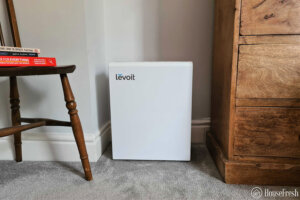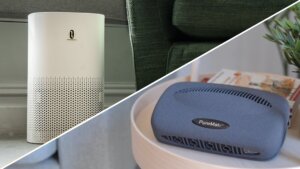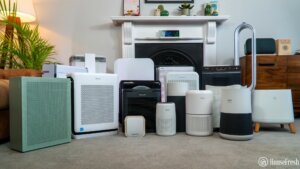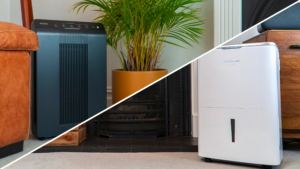We all know what it’s like to wake up in the morning with a blocked or stuffy nose. You feel like your head is trapped underwater, and sometimes you cannot shift the mucus even when you blow your nose. A stuffy nose isn’t only uncomfortable; it can cause other symptoms like sneezing, coughing and headaches. That’s what we call a bad start to the day.
You are not alone. Around 12% of people in the U.S. suffer from nasal congestion at any given time. Whether this is a once-in-a-while issue, or a nightly occurrence that’s become a burden every morning, there are reasons why this occurs, and luckily, there are solutions.
In this article, we’re going to highlight some of the major causes of nasal congestion and give you tips and tricks on reducing the problem or even eliminating your stuffy nose.
What causes your stuffy nose at night?
It’s a horrible feeling waking up with a stuffy nose in the morning, but what happens during the night to cause it? We delved into some of the most common reasons your nose can get blocked through the night.
Stuffy nose cause 1: Poor air quality
One of the most common causes of a stuffy nose is the air quality in your room. According to Centers for Disease Control and Prevention, poor indoor air quality can cause a stuffy nose, sore throat, coughing or wheezing, headache, burning eyes, or skin rash.
Particles like dust and dander can become airborne when disturbed, often settling in your nose and creating congestion throughout the night. You will notice this more if your pets sleep in the same room as you, if you aren’t cleaning and washing your bed sheets regularly, or if you have a lot of stuff in your bedroom.
Stuffy nose cause 2: Your sleeping position
Dr. Stacy Sampson says that mucus pools in the head at night, making it harder to breathe — potentially causing a stuffy nose and sinus headache in the morning. Having your head and neck in certain positions can also reduce the airflow through the nasal passages. If you lay with your head flat on the bed, you run this risk. Dr Sampson suggests elevating the head on a few pillows to help the sinuses drain more easily.
Stuffy nose cause 3: Sinusitis
If you’ve ever had to deal with sinusitis, you’ll know how much it can affect your nighttime sleep.
This article in Harvard Health tellls us that the condition can be caused by a viral or bacterial infection, allergies, or environmental irritants. It induces inflammation of the tissue that lines the sinuses, ultimately leading to mucus accumulation, aka a stuffy nose. It can get much worse at night for the reasons mentioned above.
Stuffy nose cause 4: Asthma
With around 25 million people suffering from asthma in the U.S. alone, it’s no wonder it’s a leading cause of nasal congestion. This study published by the University of Gothenburg finds that nasal congestion can be a sign of asthma. If you have this condition, your airways become inflamed and narrow, making breathing difficult. Because of this, airways produce extra mucus that clogs up the nose.
Stuffy nose cause 5: Allergies
A runny or stuffy nose is one of the most common symptoms of an allergic reaction, says Louise Chang, MD. Allergies can cause several symptoms in the human body and occur as an overreaction of our immune system to certain substances. This, in turn, makes our body release histamine, triggering inflammation. When these substances (e.g., dust, pollen and pet dander) make their way into the air in your bedroom, you will more than likely wake up with a stuffy nose.
Stuffy nose cause 6: Sleeping with pets in your bedroom
Our pets are not just animals who live in our homes; they are family members and we often like to keep them close at night. But letting your pet sleep in your bedroom can sometimes cause more harm than good. They shed what’s known as dander which is dead skin and hair that can block your nose and provoke allergies.
According to the American Lung Association, people suffering from pet allergies will have symptoms consistent with swollen nasal passages. This includes a runny or stuffy nose, sneezing, itchy or watery eyes and shortness of breath.
Stuffy nose cause 7: Sickness
We all know when cold & flu season comes around as everyone around us starts sneezing, coughing and noses fill with mucus. Flu symptoms can include fever or feeling feverish/chills, cough, sore throat, runny or stuffy nose, muscle or body aches, headaches and fatigue (tiredness), lists the Centers for Disease Control and Prevention (CDC). Unless you live in a bubble, it can seem unavoidable that you will catch what’s going around.
Stuffy nose cause 8: Changes in blood flow
The blood flow to the upper part of your body increases in your head and nasal passages when you lie down to sleep. Graham Rogers, M.D informs us that when the blood vessels inside your nose dilate, or expand, dilation of the vessels in the nose produces swelling and can cause congestion. This can leave you waking up with a blocked nose.
Stuffy nose cause 9: Smoking
We all know the dangers smoking poses to your health, but did you know it also irritates the lining of your nose and throat? The harmful chemicals in cigarette smoke can create a mucus buildup in your nasal passages, causing unwanted congestion. A 2011 study found that smokers are 2.5 times more likely to have sleep apnea because cigarette smoke induces swelling that restricts air flow.
8 ways to relieve your stuffy nose at night
Now you know why it happens, let’s look into some of the best solutions we’ve found to alleviate the discomfort of starting your day with a stuffy nose.
1. Elevate your head when you lie down
The worst thing for nasal congestion at night is lying flat on your bed. The mucus has nowhere to go. Try elevating your head with extra pillows allowing the mucus to drain away instead of congesting your nose.
2. Use a nasal spray/medication
Using a nasal spray before you go to bed and/or in the morning will help relieve your stuffy nose issues. There are several types of nasal sprays for different symptoms;
- Saline spray will rinse away any resting mucus and moisturize the inside of your nose.
- Antihistamines are a medication that calms your immune system’s reaction to allergens.
- Corticosteroid nasal sprays help reduce inflammation in your nasal passages
Always consult a doctor or pharmacist before choosing which medication best suits your particular issue.
3. Stay hydrated
Every time you breathe, you lose some of your body’s fluids and if the air in your room is particularly dry, you will lose more moisture from your nose, creating a buildup of mucus. Staying hydrated throughout the day will give your body enough fluids to keep your nasal passage moist when you’re asleep.
The U.S. National Academies of Sciences, Engineering, and Medicine determined that the average healthy adult should take between
Men – 15.5 cups/3.7 liters daily
Women – 11.5 cups/2.7 liters daily
4. Clean regularly
The mucus build-up in your nasal passages at night can be caused by breathing in dust and dander from the air in your bedroom. By cleaning regularly, you will remove these harmful particles that can block your nose. Don’t forget to wash your bed sheets regularly to remove any dead skin you have shed.

5. Keep pets out of your bedroom
Vacuuming after your pets is always a good practice, but the most efficient way of keeping the dander they shed out of your nose at night is to keep them out of the bedroom altogether. It may seem harsh at first, but trust me, when you wake up with a nose clear of mucus, it will all be worth it.
6. Use a humidifier at night
If you’re waking up with blocked nasal passages from dry air in your bedroom, try introducing a humidifier to run throughout the night as you sleep. A humidifier uses a fan to suck in dry air, passes it through a water tank and releases the freshly moisturized air into your room. This will keep your airways moist while you sleep, reducing the build-up of mucus.
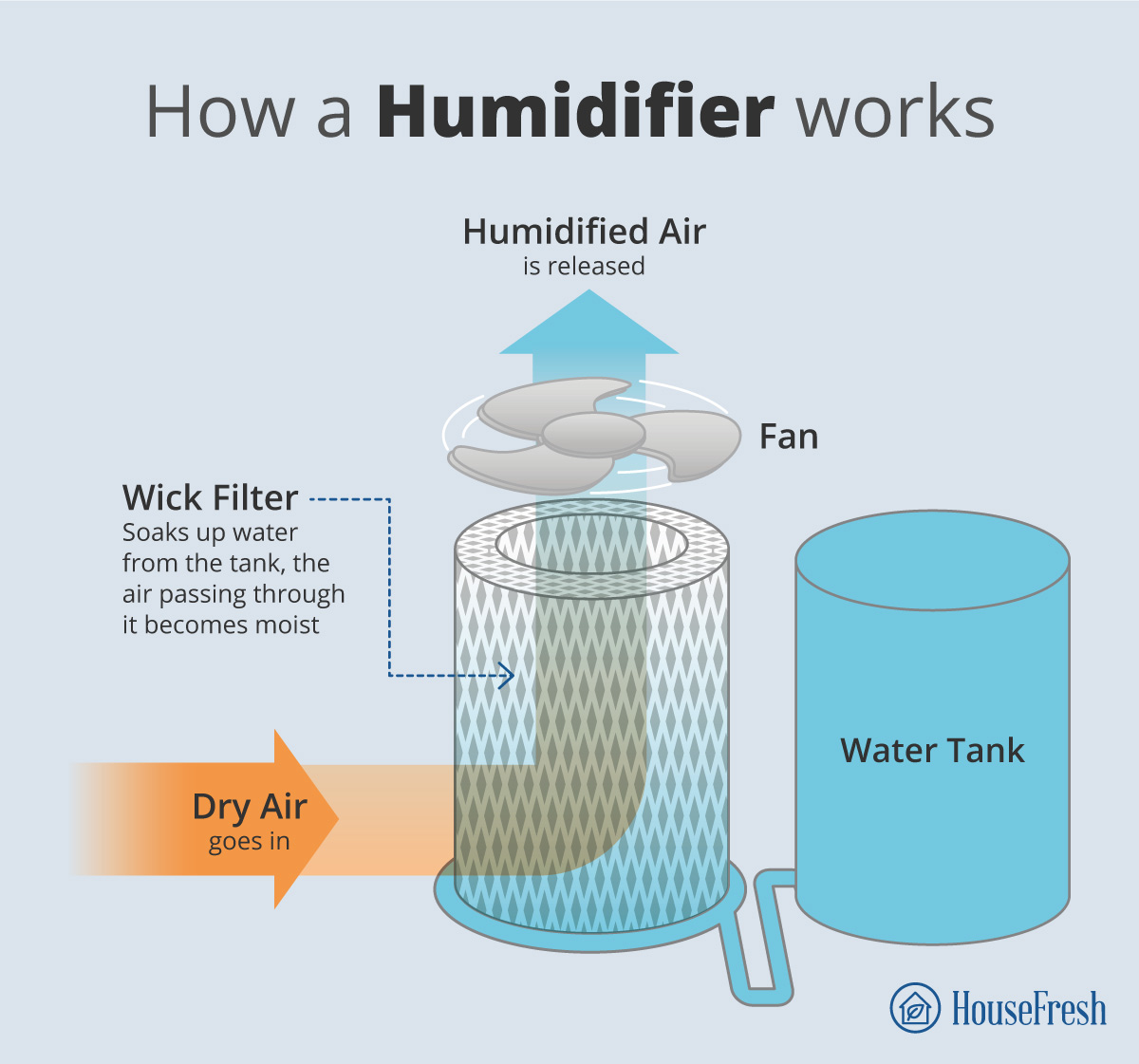
Humidifiers are great for relieving all kinds of issues you may face in your home.
They can be used for:
Sinus problems
Asthma
Coughs
Dry Skin
Snoring
7. Stop smoking
What else do I need to say? Smoking irritates the lining of your nose and throat, causing mucus to build up and make you congested. Stop smoking to stop congestion.
8. Introduce an air purifier to your bedroom
By far, the most effective way to help relieve a stuffy nose at night (if your issue isn’t medical) is to introduce an air purifier into your bedroom and run it throughout the night. An air purifier that contains a HEPA filter will remove harmful particles from the air that would otherwise clog your nasal passages.
How Does an Air Purifier Help Improve Nasal Congestion
An air purifier with a HEPA-grade filter is a scientifically proven method of removing harmful particles from the air in your bedroom that can cause nasal congestion.
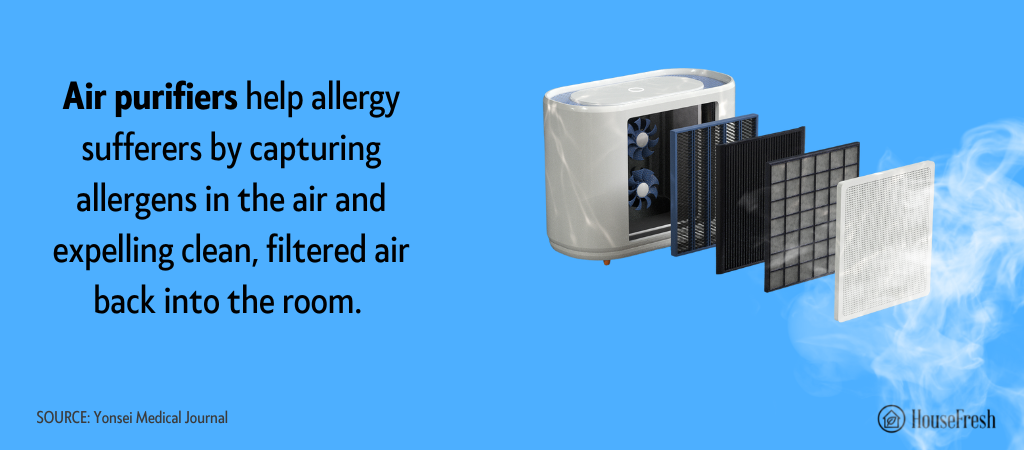
Air purifiers work by sucking in air from your room and passing it through several filters. These filters remove the microscopic particles from the air by trapping them in its tightly woven maze of fibers. The clean air is then released back into your room, free of harmful contaminants that can cause nasal congestion.
If you look at some of the reasons why you wake up with a stuffy nose, poor air quality, sinusitis, allergies, dust and dander — an air purifier will relieve these with its HEPA filters by removing those causes from the air directly before they have a chance to congest your nose.
If you’re considering buying an air purifier for your bedroom, there are a few considerations to make to help you choose the right one for your space.
Not all air purifiers do exactly the same job; some are more powerful than others, and some have better filters than others. When looking for the right unit, you need to know what cause you want to eliminate.
For example:
- For allergies, you will need an air purifier with a high-grade HEPA filter. I recommend buying a unit with a standard H13 (Medical Grade) HEPA filter. This filter will remove the nasty particles that trigger allergies. Check out our list of the 5 Best Air Purifiers for Allergies.
- If your stuffy nose is due to excess dust in the air in your bedroom and what filters it uses, you need to pay close attention to the unit’s CADR (Clean Air Delivery Rate). This shows how much air the unit will clean within your space. Check out our 7 Best Air Purifiers For Dust Removal
Each air purifier model is designed for different-sized spaces to work in, so it’s paramount that you measure your bedroom before looking at air purifiers, as the size of your room will dictate which air purifier will work most efficiently. Buying a unit designed for a space smaller than your room will not clean the air effectively. Speaking of floor space, finding the right spot for your unit within your bedroom is also important. Check out the dos and don’ts with our guide of Where Should You Put an Air Purifier in the Bedroom?
Air purifiers (like many other electrical appliances) have various price points. Factors such as; how big the unit is, what features it includes, the brand name and what filters they include will all affect the unit’s cost. For example, the large, filter-packed IQAir HealthPro Plus can set you back around $900, while the high-performing AP003 from TaoTronics costs under $70, but they are both meant for different spaces and needs.
Another expense to factor into buying an air purifier is how much it costs to run and the price of the replacement filter that will need to be changed periodically.
Final Thoughts
Waking up with a stuffy nose is highly uncomfortable and can dampen your entire day. It can be caused by many factors, from allergies to pet dander to excess dust in your bedroom, and it can even be due to how you lay your head on the bed.
Luckily there are solutions out there to help relieve the build-up of nasal congestion at night, leaving you with clean, clear passages for the morning.
Introducing an air purifier into your bedroom is the most effective way to remove the contaminants in the air that causes your nose to get stuffy at night. This will trap microscopic particles, which are the root of many reasons your nose is getting blocked.
Check out our recommendations for the Best Air Purifiers for a Small Room to find which unit best suits your needs. If an air purifier doesn’t relieve your symptoms, I recommend seeing a doctor or pharmacist, as the issue may need medical attention.



